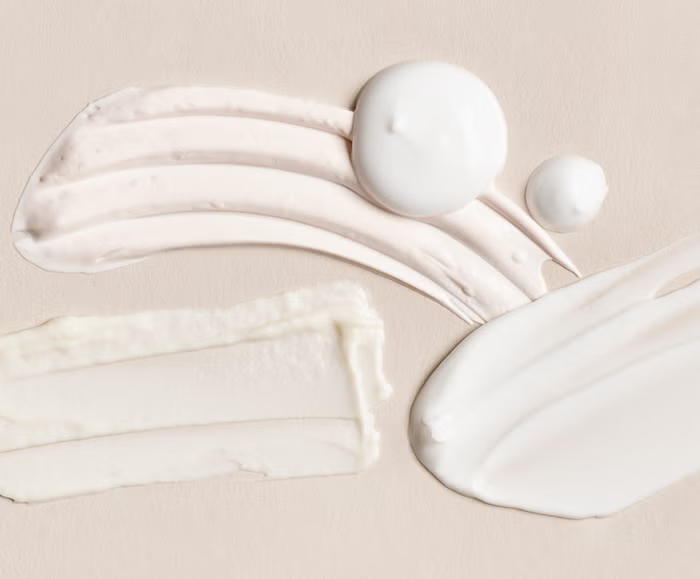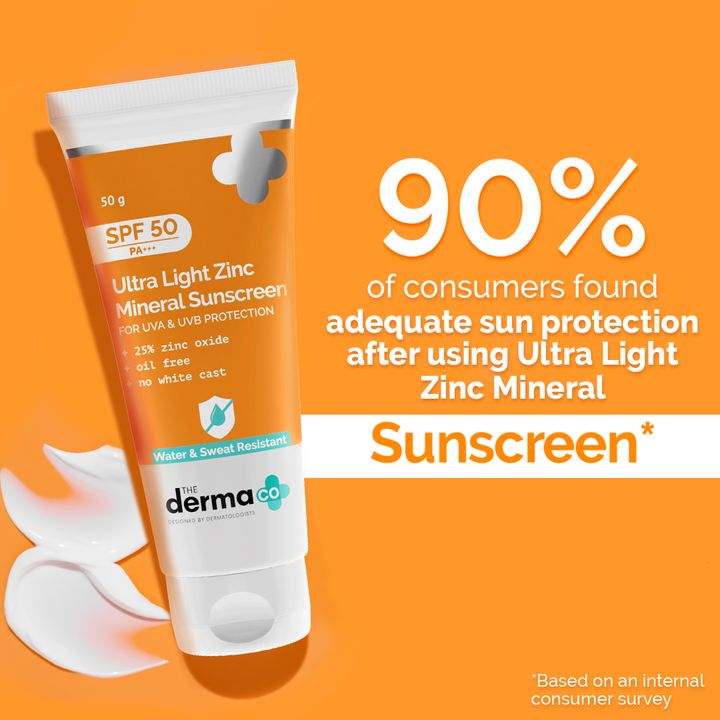
What Is Zinc Oxide?
- Zinc oxide is an FDA-approved powdery compound derived from oxidizing zinc.
- While zincite, its mineral form, can occur naturally, most commercial products use a lab-reproduced version due to its rarity.
- It has been studied since the 1930s and is known for its skin-healing properties, commonly found in skincare products like sunscreens, diaper rash creams, and anti-inflammatory lotions.
How Does Zinc Oxide Work in Sunscreens? 
- Zinc oxide is a mineral or physical sunscreen that acts as a shield on the skin’s surface.
- Unlike chemical sunscreens that penetrate the skin, zinc oxide sits on the surface, reflecting and scattering UV rays away.
- It forms a barrier between the skin and the sun’s radiation, working immediately upon application.
- Micronized zinc oxide particles can appear clear on the skin, reflecting light similarly to a mirror.
What Are the Benefits of Zinc Oxide Sunscreen? 
- Broad Spectrum Defense: Provides natural broad-spectrum defense against UVA, UVB, infrared, and blue light.
- Gentle and Sensitive Skin-Friendly: Non-comedogenic and suitable for all skin types, including sensitive or reactive skin, without clogging pores or causing breakouts.
- Long-Lasting Protection: Lasts longer than chemical sunscreens when exposed to direct UV light, with a better shelf life.
- Immediate Action: Works immediately upon application, eliminating the need to wait before sun exposure.
- Skin Care Benefits: Offers anti-inflammatory properties, supporting skin healing and soothing conditions like acne, rosacea, and eczema.
- Environmental Friendliness: Reef-safe and better for the environment compared to chemical sunscreens.
How to Choose the Right Zinc Oxide Sunscreen
- Non-Comedogenic and Hypoallergenic: Opt for formulas suitable for sensitive or oily skin to prevent breakouts and irritation.
- SPF 30 or Higher and Broad Spectrum: Choose sunscreens with at least SPF 30 for daily use, ensuring protection against both UVA and UVB rays.
- Formulation: Select a formula that suits your preferences, whether cream-based or mineral powder, ensuring ease of use and reapplication.
- Water-Resistant: Consider water-resistant sunscreens, especially for outdoor activities or water-related sports, lasting up to 40 or 80 minutes.
Click here to know difference between body scrub, body polish and exfoliates


